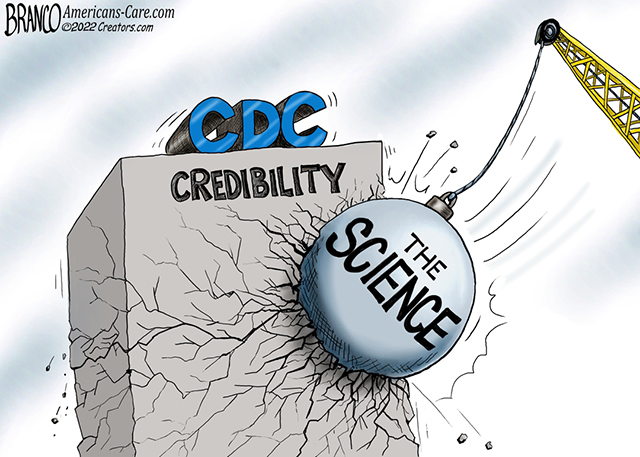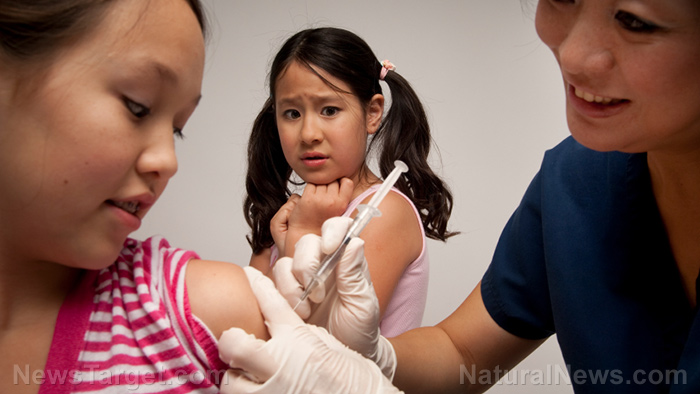Common plastic additive linked to fertility problems
06/17/2021 / By Virgilio Marin

A study published in the journal PLOS Genetics found that exposure to the plastic additive diethylhexyl phthalate (DEHP) could cause fertility problems. Led by Harvard Medical School researchers, the study showed that DEHP increases breaks in the DNA during egg production and impairs cells’ ability to repair these breaks.
How common plastic additive affects fertility
DEHP belongs to a family of chemicals called phthalates. It is widely used as a plasticizer, with around four million tons of DEHP produced every year to manufacture plastics. Both children and adults are exposed to these toxic chemicals through toys, clothing, food packaging, flooring materials and personal care products.
Plenty of studies show that exposure to DEHP causes fertility problems in both men and women. But it was unclear how the chemical exerts its harmful effects.
To investigate, the researchers exposed roundworms to DEHP at levels found in the environment to examine how it impairs egg production. They found that the chemical increases double-strain DNA breaks during the cell division process and hampers DNA repair systems. These, in turn, could lead to an incorrect number of chromosomes and disrupt embryonic development.
“This underscores the importance of identifying better alternatives for replacing DEHP,” said co-author Monica Colaiacovo. “Our future plans involve expanding our analysis to understand the effects of other phthalates and compare this to available alternatives.”
The findings provide new insights into how environmentally relevant levels of DEHP disrupt egg and sperm production in animals. Coupled with the large body of existing research on DEHP and its link to infertility, the study underscores the importance of reducing the use of DEHP and finding safe alternatives to minimize exposure.

DEHP causes genital abnormalities
A study published in the Journal of International Medical Research suggests that DEHP exposure during pregnancy may contribute to genital abnormalities in infants.
Researchers arrived at this finding after exposing testosterone-producing cells taken from mouse embryos to DEHP to determine whether the chemical influences the expression of the gene insulin-like factor 3 (INSL3), which regulates testicular descent in fetuses.
The researchers found that DEHP exposure significantly decreased INSL3 expression and deformed the cells. They then exposed pregnant mice to the chemical to study its effect in vivo. The chemical also reduced INSL3 expression and caused deformities in the testes of newborn mice.
These findings led the researchers to conclude that DEHP may interfere with genital development, potentially causing cryptorchidism, a condition in which one or both of the testes fail to descend from the abdomen into the scrotum. INSL3 gene inactivation could cause cryptorchidism, the researchers noted. (Related: Phthalates in plastic products decrease testosterone levels in men, women and children.)
How to minimize DEHP exposure
Here are some tips to minimize DEHP exposure:
- Limit use of plastics. Use glass, ceramic or metal containers for food and drinks and avoid buying products packaged in plastic.
- Avoid microwaving food. If you have to use plastic, do not microwave the food to limit the leaching out of chemicals.
- Avoid scented products. Phthalates are commonly used in fragrances.
- Make your own cosmetic products. You can use natural ingredients like honey, coconut oil, baking soda, vinegar and salt to make DIY personal care products.
- Wash hands regularly. Hand washing with soap and water removes toxins that may have clung to your skin.
Fertility problems and genital abnormalities are just some of the many health issues linked to DEHP. Minimize your exposure to this toxic chemical by following the tips listed above.
Learn more about the impact of phthalates and other widely used chemicals on your health at Chemicals.news.
Sources include:
Submit a correction >>
Tagged Under:
Birth defects, cryptorchidism, DEHP, diethylhexyl phthalate, environment, fertility problems, Infertility, men's health, phthalates, plastic additive, plastics, products, reproductive health, research, toxic chemicals, toxins, women's health
This article may contain statements that reflect the opinion of the author


















